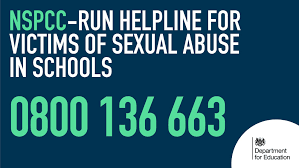Operation Hydrant
Operation Hydrant co-ordinates multiple non-recent child sexual abuse investigations around the country. Relevant investigations are those which involve either people of public prominence and/or abuse which has taken place in an institution. In most cases the victims are reporting abuse which took place when they were children (and is often linked to football). Operation Hydrant is not responsible for carrying out investigations into historic child sexual abuse. Instead, its primary purpose is to act as a central intelligence hub for historic sexual abuse allegations.
Statistics released by Operation Hydrant provides a national figure (up to and including the 29 March 2018) in relation to allegations of non-recent child sexual abuse within football.
- 2807 referrals and reports have been received by Operation Hydrant from the NSPCC helpline and directly from police force
- 300 alleged suspects have been identified
- 340 football clubs have been impacted
- 95% of those identified as victims are maleThe age range for victims at the time of the abuse spans 4 years through to 20 year
Investigating non-recent abuse, particularly of this nature, often presents significant challenges. Reduced forensic opportunities, difficulty of memory recall, a requirement to support victims and witnesses, together with significant interest shown by the media, are all factors that will affect such an investigation.
Individuals may decide not to report these offences for a number of reasons:
- fear that they were responsible
- fear of reprisal
- fear of impact on their family
- a degree of grooming and control by the abuser
- shame or fear they may not be believed
- loyalty issues
- a sense of isolation
- the intimate nature of such an offence
- not understanding that the incident is abuse
- lack of confidence in the criminal justice system
- feeling a different culture existed in previous decades
- memory recall
Victims of child sexual abuse who report as adults may demonstrate trauma symptoms and have a lowered emotional resilience; therefore, a skilled and empathic response is required from the moment a report is first received and throughout the investigation. Delayed reporting does not suggest a false allegation. Victims who came forward during other investigations reported that their allegations were triggered by becoming aware that the abuser was being investigated for a similar matter, or suspecting that the abuse is continuing against others. A victim may come forward for a sense of closure, a chance to be vindicated, or to acknowledge the impact that the abuse has had on their lives. They may wish to set the record straight and they may feel a sense of duty to report to offer support to others by providing corroborating evidence.
NSPCC Helpline
The NSPCC have a new helpline for people who have experienced sexual harassment or abuse when they were younger.
The NSPCC helpline offers support to:
- all children and young people making current and non-recent disclosures of sexual harassment or abuse on school grounds within school time, and incidents linked to school in any capacity
- any children or young people who want to talk about being involved or witnessing any incidents
- any adults who have experienced non-recent abuse
- parents and carers who have concerns about their own or other children
- professionals who work in schools and need support in this or related issues

